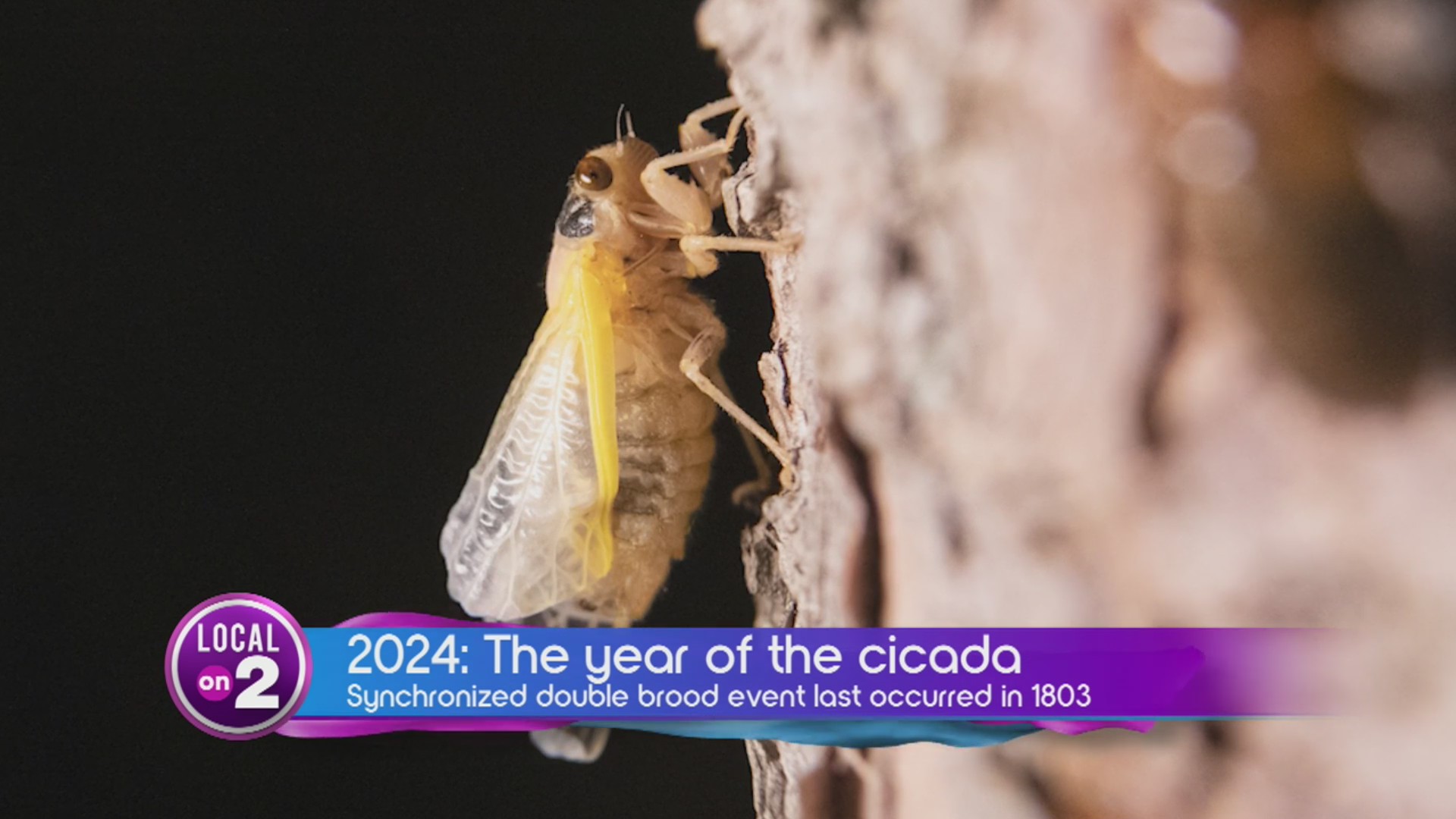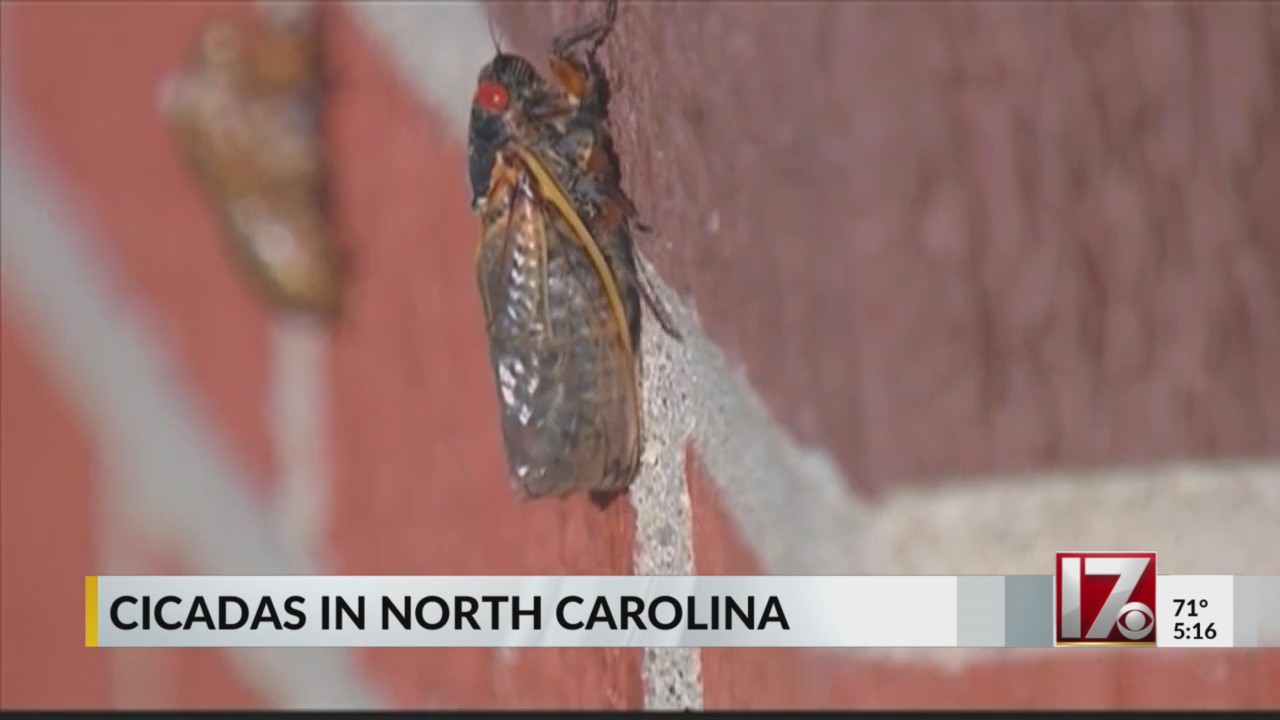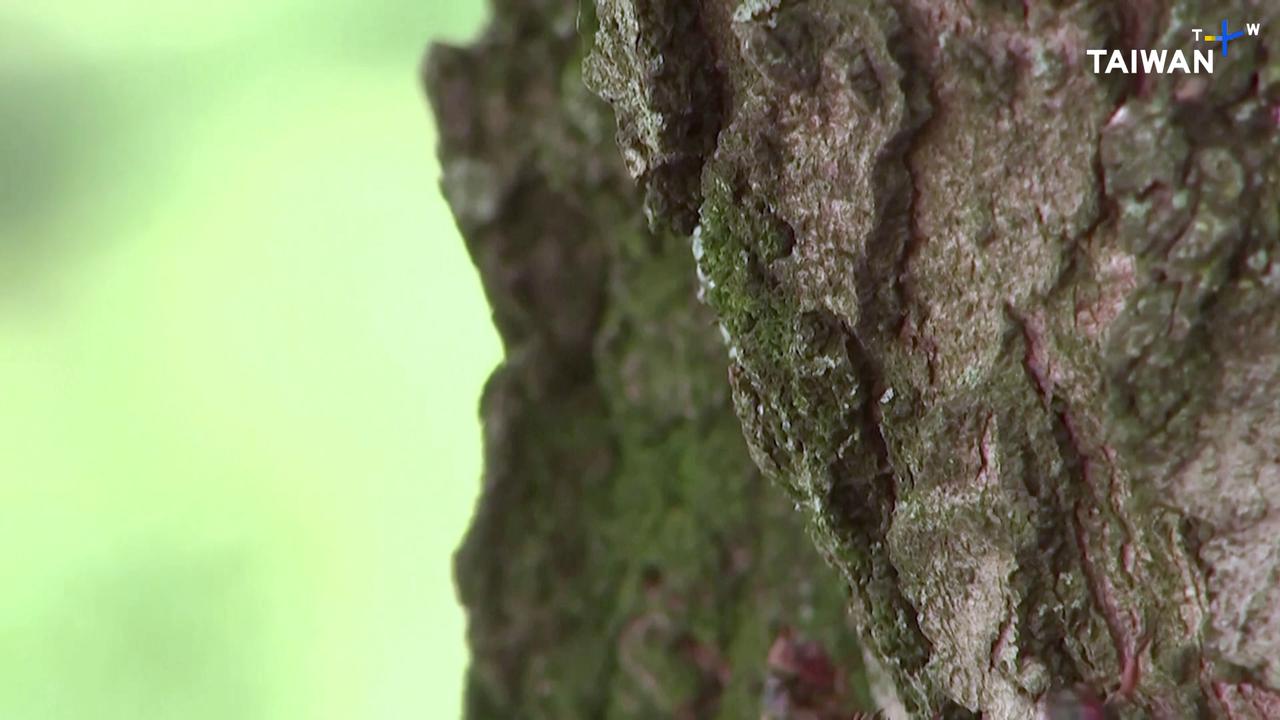carolinakid
carolinakid
BMR Veteran
- Joined
- Oct 20, 2021
- Messages
- 39,046
get ready forum it been 13 yrs


cicada with clear wings on branch against a green background© Lightwriter1949 // Canva
This means billions of cicadas will be emerging, largely in the Midwestern and Southern United States.
Pest Gnome explores the looming two-pronged massive cicada invasion and what you can do now to limit damage to your lawn and protect your trees.
This year we will see swarms of Magicicada—but the name doesn't mean they're magic, nor are they like the Wise Men of the Magi following a yonder star. Magicidada simply refers to the taxonomic genus within the family Cicadidae.
Adult cicadas vary in size depending on the species but usually have the following characteristics:


map showing where 13-year cicadas will emerge© Pest Gnome


map showing where 17-year cicadas will emerge© Pest Gnome
 Related video: First time in 200 years: two separate groups of cicadas will emerge at the same time. (WJCL)
Related video: First time in 200 years: two separate groups of cicadas will emerge at the same time. (WJCL)
Did you walk us through what this rare event means?
Loaded: 34.23%
Play


Current Time 0:19
/
Duration 2:37
Quality Settings
Captions
Fullscreen
 WJCL
WJCL
First time in 200 years: two separate groups of cicadas will emerge at the same time.
Unmute
0
View on Watch
More videos
Don't try to get rid of cicadas by using insecticides, the EPA says. You're wasting your time and money. Here's why:
Hire a pest control pro to get rid of cicadas
It will take a lot of your time and money to constantly battle the tens of thousands of cicadas that can emerge on your property. You might want to bring in a local pest control pro.
The cicada forecast has pest control pros on watch and ready in regions expected to experience this year's plagues of cicadas.
So what can you do to get rid of cicadas? Maybe you don't need to get rid of them. Maybe you can tolerate the buzz and invasion for a month. Cicadas don't live long – maybe four weeks.
Why you might want to tolerate cicadas
Some reasons you might not want to get rid of cicadas:
How to deal with the billions of cicadas expected this year? Be strong and try to put up with them, eat them, or hire a pest control pro near you. Pros should be ready to deal with all these pests.
Don't try to get rid of cicadas by using insecticides. The EPA and NIH both say insecticides won't work and have no effect.

cicada with clear wings on branch against a green background© Lightwriter1949 // Canva
Lightwriter1949 // Canva
A rare, historically massive cicada season is coming: How to protect your lawn, trees, and landscaping
2024 will be a banner year for cicadas—and homeowners desperate to get rid of them. There are two types of cicadas in the world, one that emerges every 17 years and another every 13 years. In 2024, both are coming up from the ground for the first time in 221 years.This means billions of cicadas will be emerging, largely in the Midwestern and Southern United States.
Pest Gnome explores the looming two-pronged massive cicada invasion and what you can do now to limit damage to your lawn and protect your trees.
This year we will see swarms of Magicicada—but the name doesn't mean they're magic, nor are they like the Wise Men of the Magi following a yonder star. Magicidada simply refers to the taxonomic genus within the family Cicadidae.
Adult cicadas vary in size depending on the species but usually have the following characteristics:
- Length: 2-3 inches
- Wings: Large, clear, and veiny
- Eyes: Reddish or black
- Movement: Crawling, flying but not jumping
- Annual: Come up once a year, usually in early summer
- Periodical: Appear once every 13 or 17 years, usually in late spring
- To mate, after which the male dies.
- To breed, during which the female produces 500 eggs then dies.

map showing where 13-year cicadas will emerge© Pest Gnome
Pest Gnome
Brood XIX consists of two species of cicada
In 2024, Brood XIX (Magicicada neotredecim and Magicicada tredecim), a 13-year species of cicadas, will emerge in:- Alabama
- Arkansas
- Georgia
- Illinois
- Indiana
- Kentucky
- Louisiana
- Missouri
- Mississippi
- North Carolina
- Oklahoma
- South Carolina
- Tennessee
- Virginia

map showing where 17-year cicadas will emerge© Pest Gnome
Pest Gnome
Brood XIII consists of three species of cicada
Also in 2024, Brood XIII (Magicicada septendecim, Magicicada cassini, and Magicicada septendecula), a 17-year species, will emerge in:- Illinois
- Indiana
- Iowa
- Michigan
- Wisconsin
How to limit damage from cicadas
The 2024 cicadas will emerge after leaves appear on trees. Think late spring. You can't prevent cicadas from coming, but you can limit the damage to your yard and your hearing.Did you walk us through what this rare event means?
Loaded: 34.23%
Play
Current Time 0:19
/
Duration 2:37
Quality Settings
Captions
Fullscreen

First time in 200 years: two separate groups of cicadas will emerge at the same time.
Unmute
0
View on Watch
More videos
-
WKRN NashvilleA double brood Cicada Season is upon us!
-
WNCN RaleighCicadas to hit 200-year high in North Carolina this spring
-
TaiwanPlusRare Cicada Explosion Set To Swarm 16 U.S. States - TaiwanPlus News
- Invest in earplugs or noise-canceling headphones. Cicadas are not quiet insects and will even put airplanes to shame.
- Cover pools and hot tubs. Cicadas tend to fly into them and can clog the drain.
- Do yard work in the early morning or at dusk, when cicadas are less active. Why? The vibrations from your lawn equipment can attract cicadas. Cicadas come up for mating season and the males make their sounds through vibrations. You may be making a date without knowing it.
- Wear a hat when working under trees or in your yard. Cicadas like to urinate after filling up on tree sap.
How to protect your trees
The billions of cicadas that emerge will quickly make their way to trees. To protect your trees:- Spray often with a strong hose.
- Wrap smaller trees with netting that has openings of less than 0.25 inches.
- Female cicadas cut slits into the bark to lay their eggs.
- The eggs hatch.
- The nymphs drop to the ground.
- The nymphs bury themselves until they find a tree root.
- The cicada nymphs attach themselves to the root.
- The nymphs suck out the sap and juices.
There are many types of trees that will be at risk during cicada season, among them:
- Apple
- Ash
- Cherry
- Chestnut
- Dogwood
- Elm
- Hickory
- Maple
- Oak
- Peach
- Pear
How to get rid of cicadas (or tolerate them)
How to get rid of cicadas? That's not easy.Don't try to get rid of cicadas by using insecticides, the EPA says. You're wasting your time and money. Here's why:
- So many cicadas emerge at once that as soon as one group dies another emerges.
- Insecticides might blow back into your face – or someone else's (like your neighbor's).
- Pets are always at risk when you use insecticides.
- A National Institutes of Health study found that use of insecticides on cicadas had no benefit.
Hire a pest control pro to get rid of cicadas
It will take a lot of your time and money to constantly battle the tens of thousands of cicadas that can emerge on your property. You might want to bring in a local pest control pro.
The cicada forecast has pest control pros on watch and ready in regions expected to experience this year's plagues of cicadas.
So what can you do to get rid of cicadas? Maybe you don't need to get rid of them. Maybe you can tolerate the buzz and invasion for a month. Cicadas don't live long – maybe four weeks.
Why you might want to tolerate cicadas
Some reasons you might not want to get rid of cicadas:
- Cicadas are harmless. Why waste your time and money on something that does so little damage?
- Cicadas are important. They provide lots of food for birds, fish, and wildlife.
- Cicadas are good for your lawn. They aerate the ground and nourish the soil as they decompose.
Let's end with some cicada reminders
Cicadas won't harm you, but they may bedevil you and your family for a few weeks.How to deal with the billions of cicadas expected this year? Be strong and try to put up with them, eat them, or hire a pest control pro near you. Pros should be ready to deal with all these pests.
Don't try to get rid of cicadas by using insecticides. The EPA and NIH both say insecticides won't work and have no effect.


